China welcomes Putin’s call for Iran summit; Trump seeks 'snapback'
China has welcomed Russian President Vladimir Putin’s call for a summit of world leaders on Iran, but the United States turned down the offer after it lost its bid at the United Nations Security Council (UNSC) to extend an arms embargo on the Islamic Republic.
In a statement posted on the Kremlin's website on Friday, Putin proposed holding an online conference with the participation of leaders of the UNSC permanent members, Germany and Iran to discuss problems regarding the implementation of the 2015 nuclear deal and the Persian Gulf security.
Chinese Foreign Ministry spokesperson Zhao Lijian said that his country welcomes the summit and appreciates Moscow’s attempts towards de-escalating tensions around the Joint Comprehensive Plan of Action (JCPOA).
Beijing consistently supports the nuclear agreement and is dedicated to preserving peace and stability in the Middle East, he added.
Zhao also expressed China’s willingness to keep close contacts with related parties in order to advance the political settlement of Iran nuclear issues.
Putin had stressed that the purpose of the summit was to “identify steps that will allow for avoiding confrontation and an aggravation of the situation in the UN Security Council and for furnishing collective support for the further uninterrupted implementation of UN Security Council’s Resolution 2231, which provided an international legal basis for JCPOA implementation."
He also suggested using the event as an opportunity to agree on “the parameters of joint work on forming reliable mechanisms of building trust and ensuring security in the Persian Gulf,” warning that there was no place for blackmail, coercion and one-sided approaches in the region.
The proposal came on the same day that the administration of US President Donald Trump suffered a humiliating defeat at the UNSC as its resolution to renew the Iranian arms embargo was overwhelmingly rejected.
The 13-year-old UN arms ban on Iran is set to expire on October 18 under UNSC Resolution 2231 that enshrined the JCPOA.
In the 15-member Security Council vote, the US received support only from the Dominican Republic for its anti-Iran resolution, leaving it far short of the minimum nine "yes" votes required for adoption.
Russia and China voted against the resolution and the remaining 11 council members, including France, Germany and the UK, abstained.
Speaking to reporters on Friday, Trump said he was not yet informed of Putin’s initiative.
The Russian Foreign Ministry was quick to tweet, "In a nutshell: We propose to ensure security in the Persian Gulf."
.@realDonaldTrump 🇺🇸, we've heard you haven't been informed of 🇷🇺 @KremlinRussia_E's proposal.
— MFA Russia 🇷🇺 (@mfa_russia) August 14, 2020
👉 In a nutshell: We propose to ensure security in the #PersianGulf. Statement: https://t.co/hMNpMmfy7Z
Keep calm and follow @mfa_russia to #StayInformed when @SecPompeo is busy.
French President Emmanuel Macron’s office confirmed France’s "availability in principle” to Putin’s proposal. "We have in the past deployed initiatives in the same spirit,” it said.
On Saturday, Trump was asked whether he would participate in the Putin-backed summit. “Probably not,” he replied during a news conference at his Bedminster, New Jersey, golf club.
The US president further said he intended to trigger the so-called snapback of the UN sanctions, which had been in place against Iran prior to the nuclear deal’s inking.
“We’ll be doing a snapback,” he told reporters. “You’ll be watching it next week.”
The remarks came despite the fact that the US forfeited its right to invoke the snapback of anti-Iran sanctions in 2018, when it pulled out of the JCPOA.
But the US circulated a six-page memo Thursday from State Department lawyers, claiming that the United States remains part of the 2015 Security Council resolution that endorsed the deal and still has the right to use the snapback provision.
The five other powers — Russia, China, United Kingdom, France and Germany — remain committed to the deal, and diplomats from several of these countries have voiced concern that extending the arms embargo would lead Iran to exit the nuclear agreement and speed up its nuclear energy program.
China’s UN ambassador, Zhang Jun, reiterated after the vote the Chinese contention that since the US is no longer party to the 2015 agreement, it is "ineligible to demand the Security Council invoke a snapback.” He said the overwhelming majority of council members "believe the US attempt has no legal basis.”
"Should the US insist regardless of international opinion, it is doomed to fail like today,” Zhang said in a statement, adding that the vote showed "that unilateralism receives no support and bullying will fail.”
Iranian Ambassador Majid Takht Ravanchi hit out at the US for seeking to use the arms embargo "as a pretext of killing the JCPOA forever through the snapback mechanism.”
"As we have already stated, imposition of any sanctions or restrictions on Iran by the Security Council will be met severely by Iran and our options are not limited. And the United States and any entity which may assist it or acquiesce in its illegal behavior, will bear the full responsibility,” he said.
The US administration wants to end the Iran nuclear agreement before the American elections Nov. 3, the Europeans said, pointing to the time pressure the US is exerting since the arms embargo will not expire until October.
Israel killed 37 Palestinian children in 2026 Gaza attacks: UNICEF
Israeli army, settlers intensify violent displacement of Palestinians across West Bank: Report
Israeli general admits failure, heavy losses in genocidal war on Gaza
VIDEO | London's Muslim Shopping Festival kicks off
VIDEO | Killings continue in Gaza as aid restrictions, arrests draw intl. criticism
VIDEO | Defending sovereignty: Iraq's annual conference celebrates anti-terror icons
Mossad-linked terrorist ringleader trained for ‘urban warfare’ neutralized by Iranian intel. forces
Mediterranean dockworkers stage coordinated strike in solidarity with Gaza




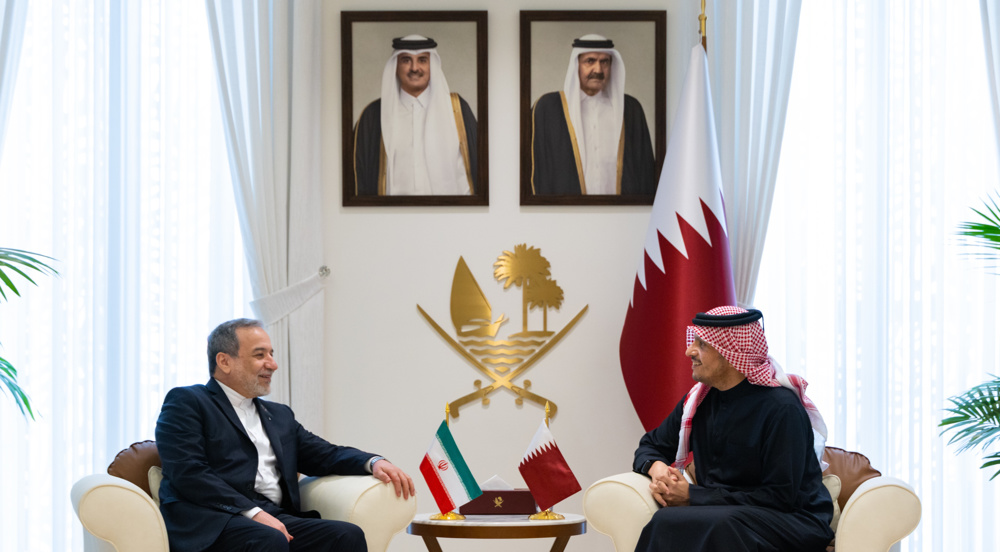
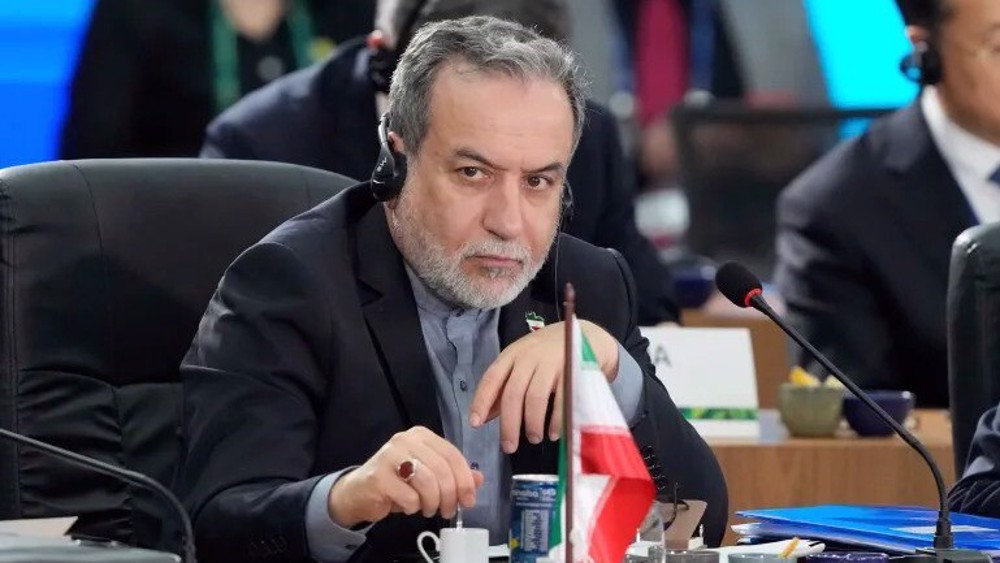
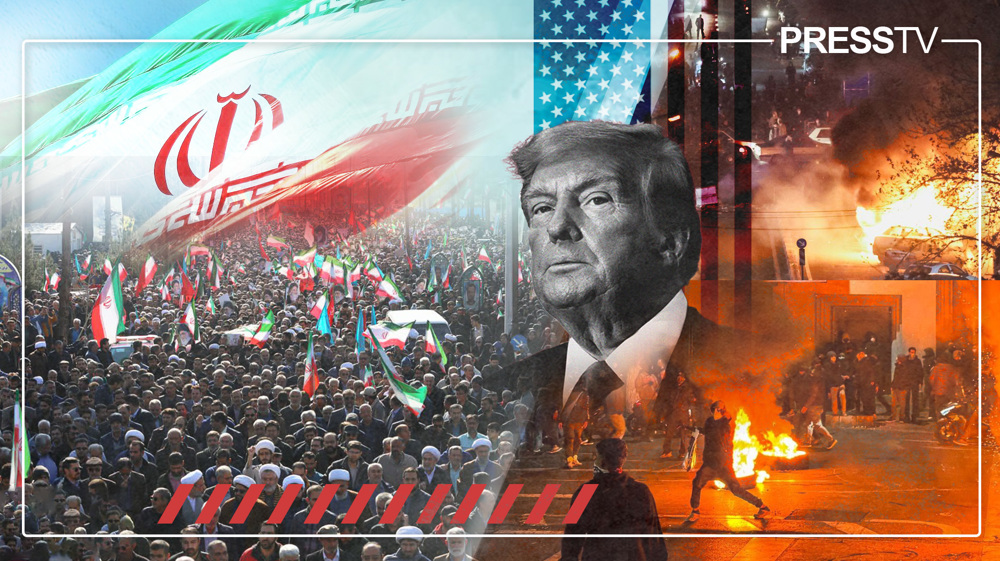




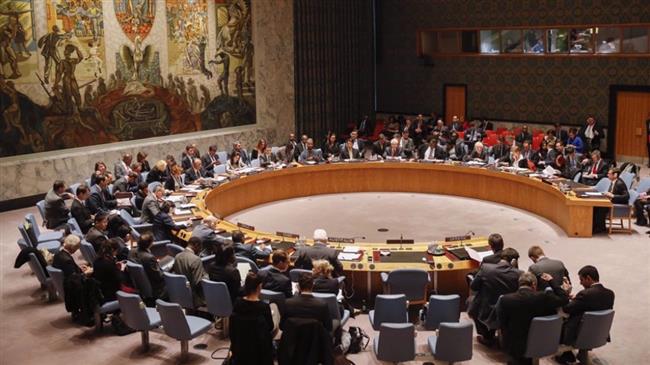

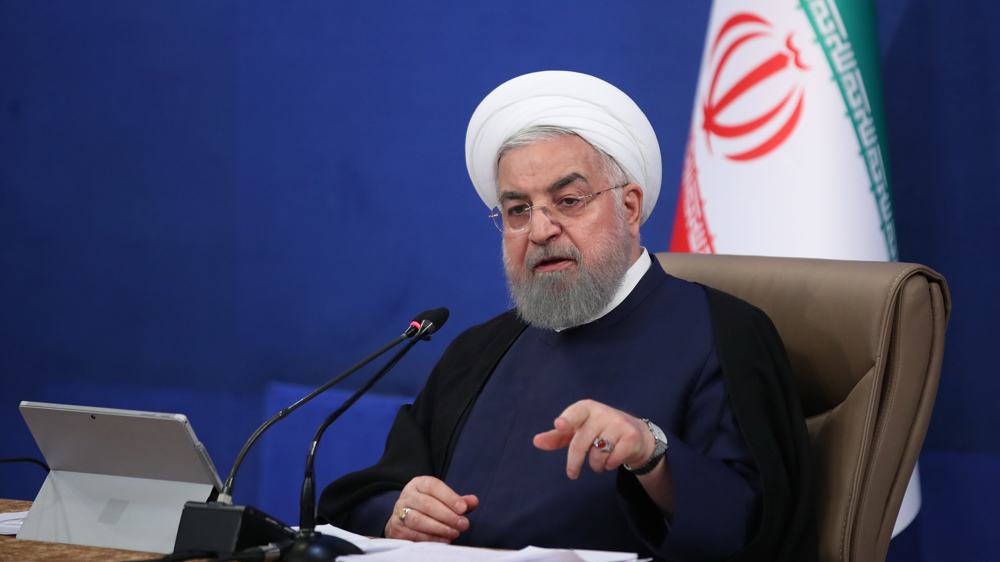
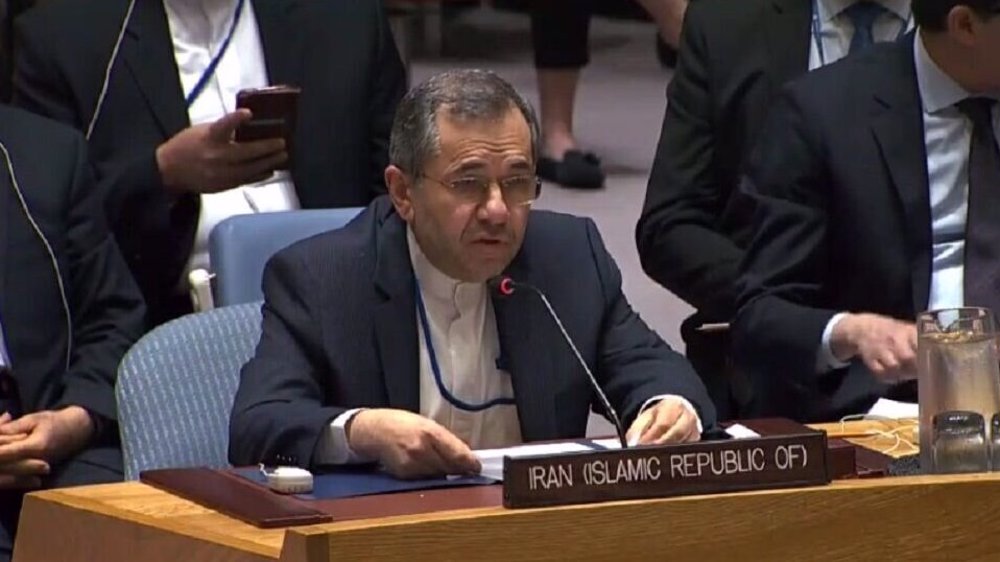

 This makes it easy to access the Press TV website
This makes it easy to access the Press TV website